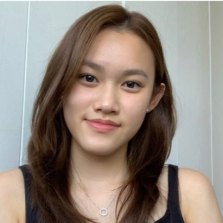Eye health has far-reaching implications for individuals and society. Yet many people face sight impairment and blindness due to inadequate access to affordable, high-quality eye care.
More than 90% of vision loss is treatable or preventable. Our MSc in Public Health for Eye Care focuses on the generation of evidence around eye health care, and the implementation of strategies based on that evidence – helping you develop better interventions and deliver better care.
Over one year (full time) or two years (split study), you’ll develop the specialist skills you need to move on from considering just the needs of the patient in front of you, to the needs of the entire population. With our mission to improve eye health services, particularly for people in low- and middle-income countries, you’ll be inspired and prepared to make global changes in the field.
What you will learn
- Understand how general public health principles, health economics and statistics apply to the promotion of eye health for all ages
- Discover and unpack the basic epidemiology of major blinding diseases and understand how to critically appraise interventions
- Learn about prevention of blindness due to ocular infections and non-communicable diseases
- Find out how to effectively design a comprehensive eye health programme for a community
- Grow the professional skills you’ll depend on in your career, such as management, research and critical evaluation
The aims and learning outcomes are detailed in the programme specification.
Your training will enable you to join the global effort to eliminate avoidable blindness. You’ll be prepared to both inform and lead eye health care practice at a local, national and international level through research, training and service delivery.
Who is it for?
This course is ideal if you’re already involved in clinical ophthalmology or optometry, in research or in eye health planning in low- and middle-income countries. But is also relevant for those from a high-income setting as many of the same principles are relevant and applicable.
Most students on this course, and particularly those seeking scholarship support, benefit from having at least three years’ experience in clinical eye care. However, we have had many successful students who have joined the course as junior doctors or intercalating medical students with an interest in international health and a desire to pursue a career in ophthalmology.
Whether you are an experienced ophthalmologist or optometrist, researcher, programme manager or a clinician in training aspiring to such roles, this course will embed you in the academics of public health and eye health promotion.
You could progress on to a PhD in blindness prevention, pursuing public health research to help answer the industry’s burning questions. Or working in university teaching hospitals, contributing to research programmes, or strategising in ministries of health for blindness prevention in your country. This course gives you the opportunity to make a real difference.
International Centre for Eye Health
Find out about the International Centre for Eye Health (ICEH).
Duration
One year full-time or split-study over two years. Ways to study explained.
Intercalating study
Find out about intercalating this programme.
Public Health for Eye Care
Watch Programme Director John Buchan talk about the programme.

Mattan Arazi
MSc Public Health for Eye Care
The below structure outlines the proposed modules for this programme. Programme and module specifications provide full details about the aims and objectives of each module, what you will study and how the module is assessed.
- Structure of the year
- Term 1
All students take the following AB1 compulsory modules:
- Basic Epidemiology
- Basic Statistics for Public Health & Policy
- Epidemiological Methods Applied to Eye Diseases
- Foundations of Global Eye Health and Eye Care Programmes
- Introduction to Health Economics
- Skills for Field Research in Eye Care
- Terms 2 and 3
Students take a total of five study modules, one from each timetable slot (C1, C2, D1, D2). The list below shows recommended or compulsory modules. There are other optional modules which may be taken only after consultation with the Programme Director.
C1 slot
- Childhood Eye Disease and Ocular Infections (compulsory)
C2 slot
- Non-Communicable Eye Disease (compulsory)
D1 slot
- Implementing Eye Care: Skills and Resources (compulsory)
D2 slot
- Ethics, Public Health and Human Rights
- Global Disability & Mental Health
- Reviewing the Literature
E module
- Applying Public Health Principles
- Proposal Development
- Project report
During the summer months (July - August), students complete a research project on an appropriate topic. Students undertaking projects overseas will require additional funding of about £1,500 to cover costs involved.
Please note: Should it be the case that you are unable to travel overseas or access laboratories in order to complete your project, you will be able to complete an alternative desk-based project allowing you to obtain your qualification within the original time frame. Alternatively, you will be able to defer your project to the following year.
Changes to the programme
LSHTM will seek to deliver this programme in accordance with the description set out on this programme page. However, there may be situations in which it is desirable or necessary for LSHTM to make changes in course provision, either before or after registration. For further information, please see our page on changes to courses.
| Fees 2025/26 | ||
|---|---|---|
| Home | Full-time | £13,580 |
| Part-time | £6,790 | |
| EU/Overseas | Full-time | £31,450 |
| Part-time | £15,725 |
*Mobile users, scroll right to view fees
Early application fee reduction for UK MSc students 2025-26
If you are a student from the UK (and have a home fee status), you will be eligible to receive a 5% reduction in your tuition fee if you submit your application by 23:59 on Friday 4 April 2025 and subsequently register onto one of our in-person MSc programmes (some exclusions apply, see detailed terms and conditions).
You must be applying for full-time study on a programme starting in September 2025; be funding your fees yourself; and be a new applicant.
If you meet the above criteria and submit your application by the deadline, you will automatically receive the tuition fee discount.
In order to be admitted to an LSHTM master's degree programme, an applicant must:
- hold either a first degree at Second Class Honours (2:2) standard in a relevant discipline, or a degree in medicine recognised by the UK General Medical Council (GMC) for the purposes of practising medicine in the UK, or another degree of equivalent standard awarded by an overseas institution recognised by UK ENIC or the GMC.
or
- hold a professional qualification appropriate to the programme of study to be followed obtained by written examinations and judged by LSHTM to be equivalent to a Second Class Honours (2:2) degree or above.
or
- have relevant professional experience or training which is judged by LSHTM to be equivalent to a Second Class Honours (2:2) degree or above.
If you have not previously studied in the UK, you can check our guide to international equivalent qualifications for our master's degrees.
The MSc Public Health for Eye Care is open to applicants who are pursuing, or planning to pursue, a career in eye health service delivery or research (usually either as an ophthalmologist or an optometrist but may also include health care researchers, eye health programme managers or ophthalmic nurses with public health or programme delivery responsibilities).
However, for those wishing to also apply for scholarship funding, given the competitive nature of the current scholarship funding environment, we expect successful applicants for scholarships will have at least three years’ experience after graduating, and be in roles where they either;
- are planning and delivering community eye health interventions,
- in research work regarding blindness prevention (usually evidenced by involvement in published research), or
- in planning and programme management roles with organisations (either governmental or NGO) delivering eye care.
Due to the high standard of applicants for scholarships, it is likely that those with less experience or who are not in a position to utilise the learning from the MSc in their current position may not be able to find scholarship support.
Applicants who do not meet the minimum entry requirement, but who have relevant professional experience may still be eligible for admission. Qualifications and experience will be assessed from the application.
English language requirements
If English is not your first language, you will need to meet these requirements: Band C
It is possible to apply without English language test results however the results of a test may be listed as a condition of an offer of admission. Please see our English language requirements for more information.
Intercalating students
You will need the equivalent of a bachelor's degree to undertake an MSc. This will usually require you to have a BSc degree or have completed the first three years of your medical degree. More information on intercalating an MSc at LSHTM.
Access and widening participation
At LSHTM we are committed to ensuring that excellent students feel encouraged to apply for a course of study with us. We have introduced an innovative contextual admissions system that is designed to support those students who have faced the greatest barriers to their learning. More information on widening participation at LSHTM.
Applications should be made online and will only be considered once you have provided all required information and supporting documentation.
Please also read LSHTM's Admissions policies (pdf) prior to submitting your application.
You can apply for up to two master's programmes. Make sure to list them by order of preference as consideration will be given to your top choice first.
Please ensure you pay careful attention to the content of your personal statement (page limit: 1 page). We do not invite applicants for interviews, so the clarity and relevance of the information you provide in your personal statement are of considerable importance to us. We would like to know your experiences in relevant fields(s), your reasons for applying to our MSc, what you hope to gain from the training we offer, and how you intend to use the knowledge and skills you acquired to further your career and contribute to improving health.
Application fee
A standard non-refundable application fee of £50 applies to all taught Master’s degree programmes and is payable upon application submission. Income generated from the application fee is shared between scholarships and the student hardship funds.
Application deadline
The final closing dates for all taught Master’s applications for entry in the 2025/26 academic year is:
- Sunday 27 July 2025 at 23:59 UK time for all students requiring a Student visa
- Sunday 31 August 2025 at 23:59 UK time for all UK, Irish and non-Student visa students
Tuition fee deposit
Applicants are required to respond to their Offer of Admission and pay the £500 deposit within 28 days of receipt, or their place will be released and the offer automatically declined. The deposit is deductible from tuition fees upon full registration with LSHTM. Applicants in receipt of a full scholarship will not be required to pay the deposit.
Do you need a visa?
Please visit our Visa & Immigration pages for advice and guidance.
Graduates from this programme are expected and encouraged to enter into careers with ministries of health, universities and NGOs involved in developing health services to prevent blindness and improve vision.
Below you will find just a few of the positions and organisations that our graduates from this course have entered:
- Example job titles:
- Example organisations:
-
The Lancet
United States Department of Health & Human Services
University of Pittsburgh Medical Center
World Health Organisation
Business Without Borders
Al-Shifaa
University of Science and Technology
Jaramogi Oginga Odinga Teaching & Referral Hospital
Civil Hospital

